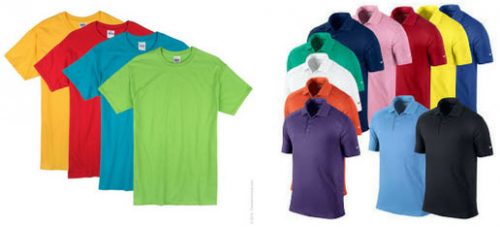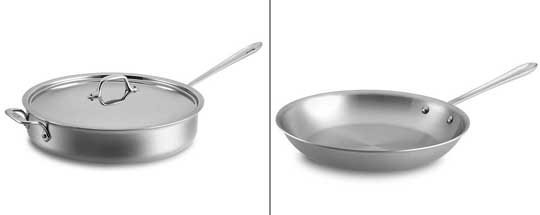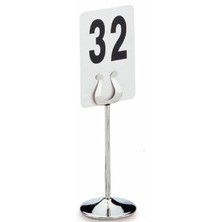When the Right Word is Wrong
Terry Odell
 As writers, we deal in words. Thousands of words. And we’re always looking for the right word to use. But what happens when the right word is wrong?
As writers, we deal in words. Thousands of words. And we’re always looking for the right word to use. But what happens when the right word is wrong?
For example, I was reading a draft chapter from one of my writing pals. She’d written something about a man pulling up the collar of his t-shirt to wipe sweat off his face. My comment to her was, “T-shirts don’t have collars.” Her reply was “Yes, that’s what I was taught when I took sewing classes.” I recalled that when I worked a temp job, our jackets were provided, but we were told to wear shirts with collars, and the accepted attire was either a blouse with a collar or a polo shirt, but absolutely no t-shirts. Being curious, I hit the search engines and looked up t-shirts.
Merriam-Webster said this: a collarless short-sleeved or sleeveless usually cotton undershirt; also : an outer shirt of similar design
Wikipedia had this to say: a style of unisex fabric shirt, named after the T shape of the body and sleeves. It is normally associated with short sleeves, a round neckline, known as a crew neck, with no collar.
So, I was “right”—to a degree. Will readers stop reading to research words, especially ones they assume they know the meaning of? Not likely (as authors, we hate to pull anyone out of the read). However, some readers won’t notice it, because they consider the neckline of a t-shirt a collar. Others might hiccup, thinking the same way I did. Will it spoil the read? No.
Is there a solution? Maybe. When in doubt, I’d go with the dictionary definition. That way, if someone is puzzled enough to wonder, when they look it up, they’ll see the author was right.
 Another example. My Triple-D Ranch series includes a character who runs a cooking school. I was writing a scene where she was teaching her students about the various pots and pans they’d be using. She was talking about the differences between frying pans and sauté pans (based on my trip through the Google Machine). I ran my draft by my (former) chef brother to see if I got things right. He came back and told me all my research was “wrong” because anyone trained in cooking wouldn’t use those terms, and proceeded (at some length) to set me straight. And therein lies the rub. He’s not my “target” reader, but he knows of what he speaks. Other readers might, too. And just as many would “know” that they’re right about the differences between sauté pans and frying pans. Either way, I’m right for some, and I’m wrong for some.
Another example. My Triple-D Ranch series includes a character who runs a cooking school. I was writing a scene where she was teaching her students about the various pots and pans they’d be using. She was talking about the differences between frying pans and sauté pans (based on my trip through the Google Machine). I ran my draft by my (former) chef brother to see if I got things right. He came back and told me all my research was “wrong” because anyone trained in cooking wouldn’t use those terms, and proceeded (at some length) to set me straight. And therein lies the rub. He’s not my “target” reader, but he knows of what he speaks. Other readers might, too. And just as many would “know” that they’re right about the differences between sauté pans and frying pans. Either way, I’m right for some, and I’m wrong for some.
What did I end up writing? My instructor now says,
“Most cooking techniques and terminology we use comes from the French. However, a lot of names have been Americanized, and none of you will be ready for a fancy French restaurant simply by completing this course. You’ll be cooks, not chefs. So, I’m not going to dwell on terminology too much. As long as you can match the right tool with the right task, you’ll do fine.”
 And then there’s the most important part about choosing the right word. POV.
And then there’s the most important part about choosing the right word. POV.
Example 1
My characters were in a café, and it was one where customers place their orders at the counter, and the clerk hands them a metal stand with their order number on it to display on their table so the servers can find them.
First, I’d shown the heroine entering the café and placing her order.
She paid for her meal, accepted the metal holder with the number eighteen from the clerk, and found a small table in the back of the crowded café, inhaling the blend of aromas as she waited for her order to be ready.
In the next scene, the hero arrives and places his order.
At the counter, Bailey ordered a burger—a man had to eat, right?—and carried his stand with its number to Tyrone’s table.
My critique partner had trouble with the word “stand” in the second example, and asked what they were really called, and maybe I should use that definition instead.
So, I took a quick trip through Google and learned they’re called “Table Number Stands,” so my use of the term is correct.
Example 2
My character was at an event in a hotel, and she was going to leave, so she wanted to get rid of the half-empty glass she was carrying.
I’ve been to enough events at hotels or banquet halls, and I know the catering people normally have trays on stands set up at various places around the room where guests can deposit their used dishes. But I didn’t know what they were called.
But you know what? I forgot one crucial aspect. Would the character know?
What if my research showed the aforementioned table number stands were called Grabbendernummers. Then, I could have written, “Bailey carried his Grabbendernummer to the table.” But would he know that?
You see, it doesn’t really matter what you, the author knows or doesn’t know about something. It’s what the character knows. If my character with the half-empty glass were in the catering business, then yes, she’d refer to that tray by a proper name, if it had one. (And per my brother the chef and all the Googling I’d done, there isn’t a specific term for them.) So, my heroine, would simply see the tray on a stand. It might be black, or brown, or covered with linens, but she’s going to think of it as a tray.
Yes, do your research. But if you want to save a lot of time—especially if you’re easily sidetracked while looking something up—ask yourself if the character would know whatever you’re researching first. Just because the author knows (or looked up) what a particular object is called, in Deep POV, it’s the character who has to know it. The character is going to use whatever vocabulary exists in his head, not the author’s.
Are you a stickler for the correct word? Do your characters know them?
 Now available for Preorder. Trusting Uncertainty, Book 10 in the Blackthorne, Inc. series.
Now available for Preorder. Trusting Uncertainty, Book 10 in the Blackthorne, Inc. series.
You can’t go back and fix the past. Moving on means moving forward.
Terry Odell is an award-winning author of Mystery and Romantic Suspense, although she prefers to think of them all as “Mysteries with Relationships.” Follow her on Facebook and Twitter.

Being a word-geek and a semi-perfectionist, this will prove immensely helpful…
And, if I may : “The character is going to use whatever vocabulary exists in his head, not the author’s.” – Pretty deep culturally (and theologically) speaking if you think about it… (and will pardon the pun…)?
“Deep” is not something generally associated with my writing. Thanks, George.
I loved your post, Terry. The mention of “grabbendernummer” was worth reading all by itself. I don’t get out much (this ankle monitor puts a crimp in one’s social life. At least, it’s supposed to) so I would have called a grabbendernummer a serving tray. If pressed as to the meaning of the word, I would have guessed 1) the direction given to customers by the receptionist at the führerscheinstelle or 2) firmly grasping your German parent’s mother. If I am ever again invited to a function held at a place classier than Golden Corral I now know what to call that item.
Thanks for a terrific post that has brightened my day while it is still dim outside!
And your comment brightened mine. Thanks, Joe. As the daughter of a German immigrant, those sorts of words make perfect sense, and with a non-German, word-loving, father subjected to a large set of non German-speaking relatives, there was an extensive creative vocabulary used at my house.
Good morning, Terry. Excellent post.
As one who has wiped the sweat off his face with the collar–excuse me, neckline– of his T-shirt, I grab whatever is handy. It seems to me that you have four choices – the dictionary correct term, the term the author would use, the term the POV character would use, and the term the reader(s) is familiar with (region of the country, ancestry, etc). In other words, you have a 25% chance of being “correct.”
I use young readers as beta readers for my middle-grade fantasy. They’re always “educating” me. And many times they are wrong. But we don’t want speed bumps, so I usually go with the term most likely to keep my target audience happy, and realize that it will probably be wrong in ten years.
Great post, Terry. Have a great day, and don’t wipe the sweat on your neckline.
Thanks, Steve. I was going to include another example of regional vocabulary — pop, soda, coke, etc., but that would have dragged the post out even further, and I thought it was plenty long.
Now that I live high in the mountains of Colorado, I rarely sweat, but back in my decades of Florida living … yes, you grab anything.
Regionalism goes way beyond a cold bubbly drink. My second job is in a restaurant. We call the inserts, inserts. In other parts of the country they are called cambros. Cambro is the main manufacturer.
https://www.katom.com/144-66CW135.html?gclid=Cj0KCQjwzYGGBhCTARIsAHdMTQxmOMRxkLj83rfQNBtbLca9uXV-GNbOMS4RJO73HrvmmNzoatlG5kQaAjUdEALw_wcB
I’ve always been partial to thingie, gizmo, doohickie, watchamacallit, myself. 🙂
My series hero is a genius, so he has to know all the right words. Maybe I should have made him a lucky dunce instead.
Google helps, of course. I try to find images first, then check out the word.
On occasion I’ll pull out my Facts on File Visual Dictionary. It’s a bit old, but in many cases still useful.
https://amzn.to/352Lv6z
I have one recurring character who loves using “ten-dollar words” and he can be fun to write for. I have the Descriptionary and Flip Dictionary when I’m hunting for words (although I confess I’ve been lax about using them when there are online sites that don’t require me getting out of my chair and walking three steps to my bookshelves.)
Excellent point, Terry. What matters most is what your POV character would call the item. It’s tempting to include the dictionary word, but if your character wouldn’t know it, it makes little sense.
Exactly. For those of us who write in Deep POV, our characters can be a curse or a blessing.
ask yourself if the character would know whatever you’re researching first. Just because the author knows (or looked up) what a particular object is called, in Deep POV, it’s the character who has to know it. The character is going to use whatever vocabulary exists in his head, not the author’s.
Terry, never thought of this! Thanks for the tip. I struggled and struggled in my current WIP over how much bug trivia to impart to my readers about monarch butterflies, a passionate interest of my main character. I might go back and look at those scenes again. I had to look up the info, but she knows a lot about them, having studied them since she was ten years old, photographed them, and bought miniatures of them. Some of the details of a butterfly’s existence illustrates the theme of the novel.
I might be able to insert a few more details to enhance the theme, but without bogging the reader down.
Love TKZ… 🙂
Glad it helped. Deb. When a character is an expert, it’s hard to keep from info dumping. Everything has to be balanced so as to be true to the character (and for that specific scene/time/place in the novel) without boring the reader.
Great post, Terry. I agree, POV is vital for helping to determine which word a character might use. My hero Mathilda was blunt and straightforward, whereas my sleuth Meg Booker is more educated and literary. The problem in the latter case is that she may well use words that *I* don’t know. My own vocabulary is very much a work in progress.
One of the few things Stephen King emphasized in his wonderful On Writing I disagreed with was his point that writers shouldn’t work to improve their own vocabulary, because that will make them sound unlike themselves. Of course, King has a marvelously rich vocabulary, especially compared to myself. As long as I keep character POV in the forefront when it comes to the right word, I feel I can’t go far wrong 🙂
Thanks for another interesting and helpful post.
You’re very welcome, Dale. It doesn’t really matter if you “improve” your vocabulary to match your characters. When you’re writing, you should sound like your characters. Maybe that’s why I have trouble with “literary” fiction; too often the beautiful words don’t sound like the characters are telling the story.
“…too often the beautiful words don’t sound like the characters are telling the story.”
Terry, you’ve hit the nail on the head with that one!
I have a literary style and write dark, epic fantasy. At times it gives me cramps with my fairly B&W, no-nonsense soldier MC.
I “accidentally” got around that by giving her a childhood upringing in the temple, among astute instructors and books and collegium classes before trading it all in for life in garrison. It now gives her a multi-layered personality because she can argue philosophically but likes to act that she’s just “another dumb boot.”
It’s a tricky balance I’ve written for myself with this deep FP-POV, but it seems to work.
Sounds like you’ve made it work, Cyn. The story sounds fascinating.
I love arguments over definitions. I put them in my manuscripts. A three-way argument over whether a woman’s Beretta Model 70 uses “clips” or “magazines” is resolved in favor of “caricatores” when her little brother waves the Italian-language manual under their noses with superhuman smugness.
I figure that my readers are avid readers, so my protagonists are, too, and it’s not a big leap from this to having the characters argue over terminology and play one-upmanship with the occasional supererogatory phase, provided the context is clear.
If the characters are arguing on the page, that’s a good way to get around terminology issues. For me, “clip” for handguns always pulls me out of the story–had a huge argument with my ex son-in-law, a gun person about it–and he finally conceded I was right. And let’s not get started about safeties!
Fun post, Terry. The point about what the character would think/say is gold. Thanks also for sharing the reason a t-shirt is called a “t”-shirt. I never knew that but of course it makes perfect sense.
When I don’t know the proper term or the correct word would be a speed bump to readers, I drop back and punt. IOW, I find a way to write around my ignorance. In the case of the t-shirt, I’d have the character pull up the tail of the t-shirt to mop the sweat from his face.
Thanks, Debbie.
Writearounds are an author’s very good friends. Of course, if you didn’t know t-shirts technically didn’t have collars, and thought they did, you probably wouldn’t be taking the time to look it up. Knowing what we don’t know is the hardest part of research.
I’ve been known to use the sleeve of my t-shirt. Pulling it up by the hem would work, but if the character were female, that could create other issues.
In my first years of writing after years of college and graduate school, I had to keep simplifying my vocabulary because really big words were my natural vocabulary, and I caught myself doing the same thing with a main viewpoint character with my education. I had to ask myself whether I was doing this to fit characters or not stump some readers. I started to compromise. Big words where only they would do, and I tried to give enough context that it wouldn’t halt a reader in her tracks.
I’ve since tried to pinpoint the right vocabulary for each character. I kept a color chart beside me when I wrote a professional painter so I’d write “cerulean” instead of “blue” to describe the lover’s eyes. And if my hero without a clue stared at his car engine, he wasn’t coming up with the right term without checking his car manual.
Sounds like you have it well figured out, Marilynn. Stick to the characters. Write what THEY know.
Loved this post. I’m always thinking about whether a character would know a certain word, but also whether they would use it when speaking.
I must have been raised by bumpkins because I don’t (clarify – won’t) use whom when speaking. I find it pretentious. Yes, I know how to use it properly, but simply won’t. I had a critique partner once try to convince me that my character’s dialogue was incorrect because it should have been whom instead of who. Yes, she was correct, however, that particular character, like me, would never use whom. I had another character in that same story who was a very precise and specific person. Everything she said was proper. She is the only character I’ve ever written who used whom.
Yes, dialogue is a whole different set of rules. I don’t let anyone correct “my” grammar if it’s a character speaking in a manner that’s “right” for them. Makes it nice not to worry about the rules! 😉
Great post! You are so right. However I hadn’t really thought about that point until now. Now, I won’t get too hung up on professional wording for items my character would not have any reason to know. Love it.
Using character-centric vocabulary can make life much easier!